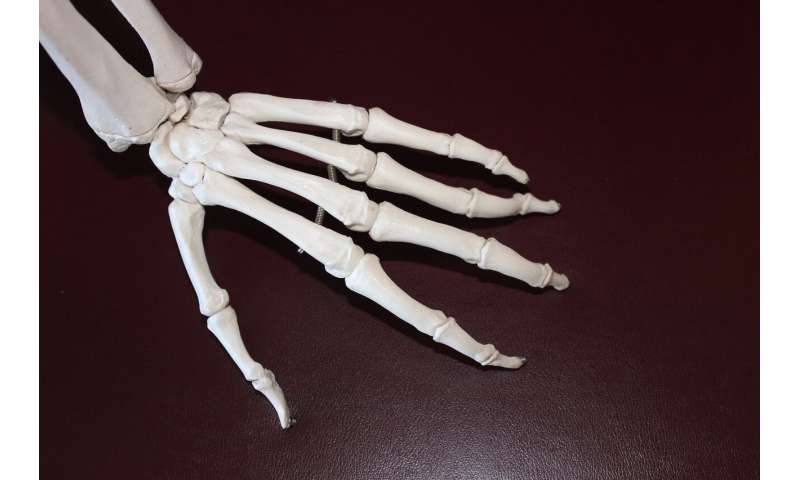
Since doctors began treating cancer patients with immunotherapy drugs called checkpoint inhibitors nearly a decade ago, they have observed that a subset of these patients experience a side effect that clinically looks like inflammatory arthritis. These drugs, which take the natural brake off immune cells called T cells and allow them to attack cancer, can result in T cells also attacking healthy tissues, including the joints.
Now a study from investigators at Hospital for Special Surgery (HSS) and Brigham and Women’s Hospital in Boston has found that the synovial fluid and blood of people experiencing checkpoint inhibitor-induced arthritis is populated by a type of T cells rarely seen in people with other types of inflammatory arthritis. The findings are being presented at the virtual American College of Rheumatology/Association of Rheumatology Professionals annual meeting.
“Although checkpoint inhibitor-induced arthritis looks like other forms of inflammatory arthritis, our findings suggest that they’re not the same,” says study co-author Karmela Kim Chan, MD, a rheumatologist at HSS. “These findings are preliminary, but they are very interesting.”
Checkpoint inhibitor-induced arthritis occurs in about 5% of people taking immunotherapy drugs. The researchers looked at synovial fluid and blood from 10 cancer patients who had experienced this side effect; all of them were being treated with drugs that target the immune checkpoint CTLA-4 and/or PD-1. The team also analyzed blood and synovial fluid from 11 people with rheumatoid arthritis (RA) and nine people with spondyloarthropathies (SpA).
The analysis revealed a unique population of CD38hiCD127- CD8 T cells. This designation means that they expressed high levels of a marker called CD38 and did not express a marker called CD127. These T cells were expanded in both the blood and joint fluid of people with checkpoint inhibitor-induced arthritis.
Flow cytometry and RNA sequencing analysis demonstrated these cells to be both cytotoxic and actively proliferating. Furthermore, RNA sequencing suggested that these cells may respond to the immune-related protein interferon, but more research is needed to confirm the significance.
“We don’t yet know if this population of T cells is causing checkpoint inhibitor-induced arthritis or if it’s a common feature of a larger population of people being treated with checkpoint inhibitor drugs,” notes Dr. Chan. “Our next step is study the blood and synovial fluid of more people being treated with these drugs and not limit our analysis only to those who are experiencing these side effects.”
Source: Read Full Article